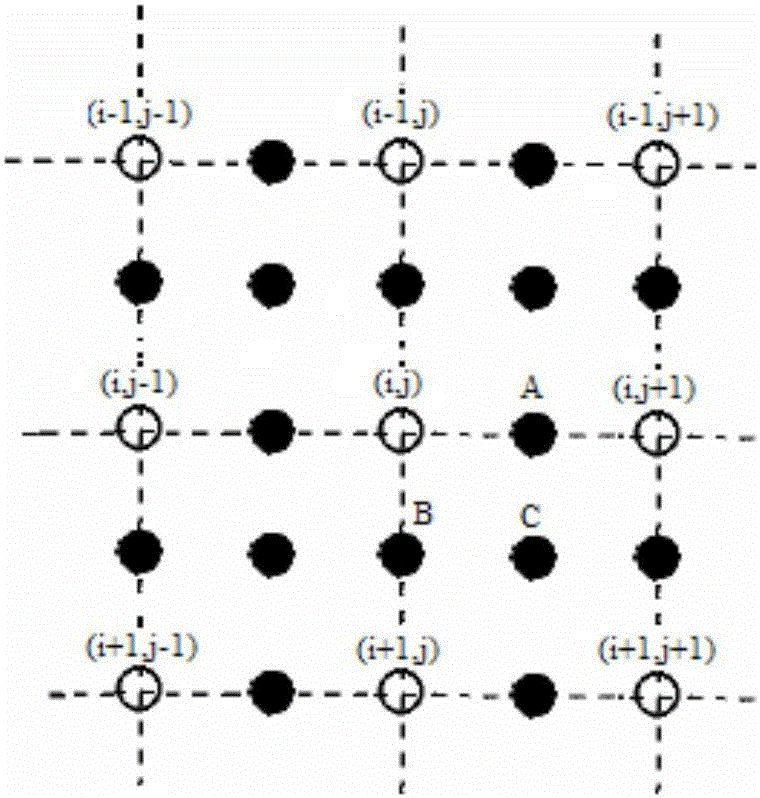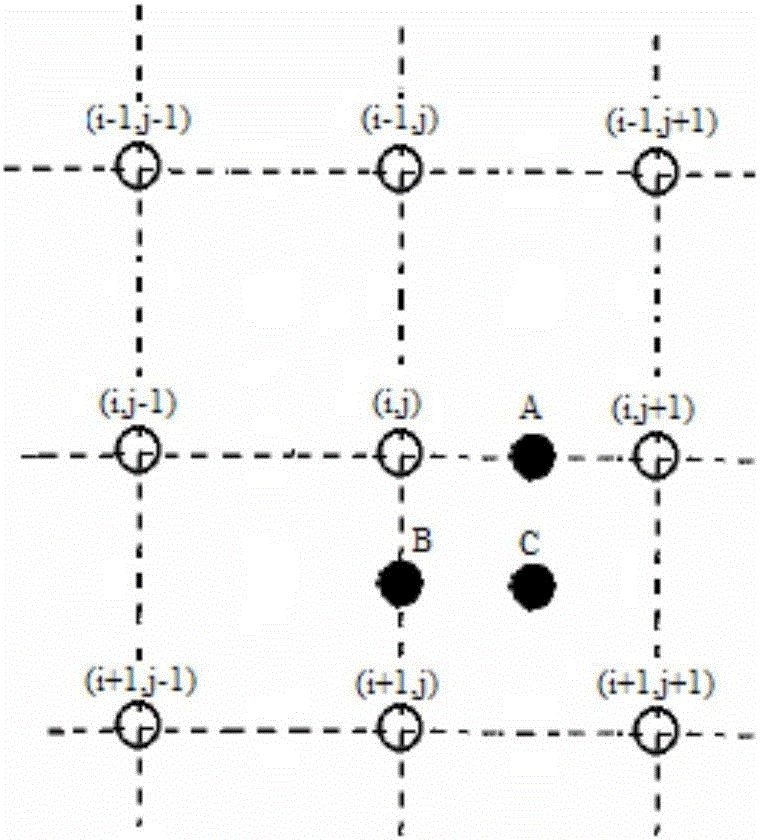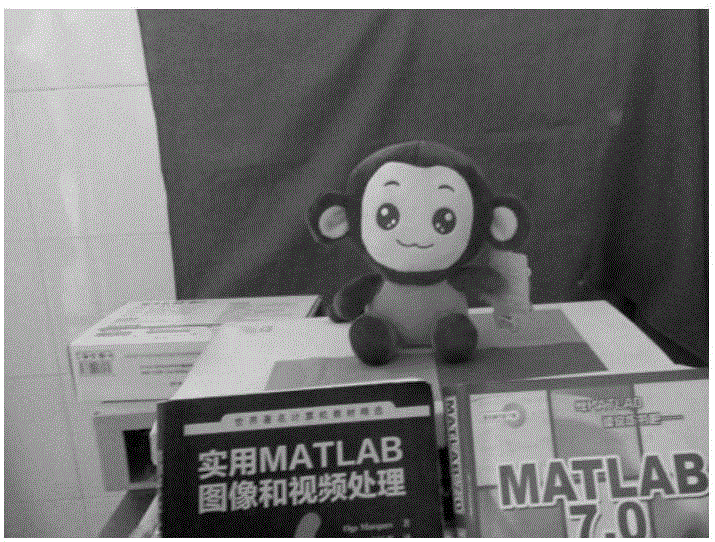Depth image enhancement method for TOF camera
A TOF camera, depth image technology, applied in image enhancement, image data processing, graphic image conversion, etc., can solve the problem that the resolution of depth image is not as good as that of ordinary color image, the limitation of TOF camera market promotion and application, and the noise interference of depth value of depth image. and other problems, to achieve the effect of ensuring the quality of interpolation, improving the quality of depth images, and improving the effect of interpolation.
- Summary
- Abstract
- Description
- Claims
- Application Information
AI Technical Summary
Problems solved by technology
Method used
Image
Examples
Embodiment 1
[0099] Embodiment 1: Set the interpolation magnification of the depth image to N=8
[0100] (1) Using the image averaging method to suppress the noise of the collected depth images, the averaged results of 10 depth images are as follows Figure 5 shown;
[0101] (2) Perform the following steps for each pixel in the low-resolution depth image to complete the 2-fold interpolation enlargement of the depth image.
[0102] 1. Determine whether the pixel point (i, j) belongs to the edge area.
[0103] According to formula (1), using image 3 The four direction templates are operated separately. In this example, the edge detection threshold T is set to 50, when max(|R 1 |,|R 2 |,|R 3 |,|R 4 |)>50, the pixel belongs to the edge area, and the direction corresponding to the maximum value is the edge direction; otherwise, the pixel belongs to the smooth area.
[0104] 2. If the pixel point (i, j) belongs to the smooth area, use formulas (2), (3), and (4) to calculate the three in...
Embodiment 2
[0112] Embodiment 2: Set the interpolation magnification of the depth image to N=10
[0113] (1), use the image averaging method to carry out noise suppression on the collected depth images, in this example, 10 depth images are used for averaging;
[0114] (2), each pixel in the low-resolution depth image is operated according to the following steps, and the 2-fold interpolation amplification of the depth image is completed;
[0115] 1. Determine whether the pixel point (i, j) belongs to the edge area;
[0116] According to formula (1), using image 3 The four direction templates are operated separately. In this example, the edge detection threshold T is set to 50, when max(|R 1 |,|R 2 |,|R 3 |,|R 4 |)>50, the pixel belongs to the edge area, and the direction corresponding to the maximum value is the edge direction; otherwise, the pixel belongs to the smooth area;
[0117] 2. If the pixel point (i, j) belongs to the smooth area, use the formulas (2), (3), and (4) to cal...
PUM
 Login to View More
Login to View More Abstract
Description
Claims
Application Information
 Login to View More
Login to View More - R&D
- Intellectual Property
- Life Sciences
- Materials
- Tech Scout
- Unparalleled Data Quality
- Higher Quality Content
- 60% Fewer Hallucinations
Browse by: Latest US Patents, China's latest patents, Technical Efficacy Thesaurus, Application Domain, Technology Topic, Popular Technical Reports.
© 2025 PatSnap. All rights reserved.Legal|Privacy policy|Modern Slavery Act Transparency Statement|Sitemap|About US| Contact US: help@patsnap.com



